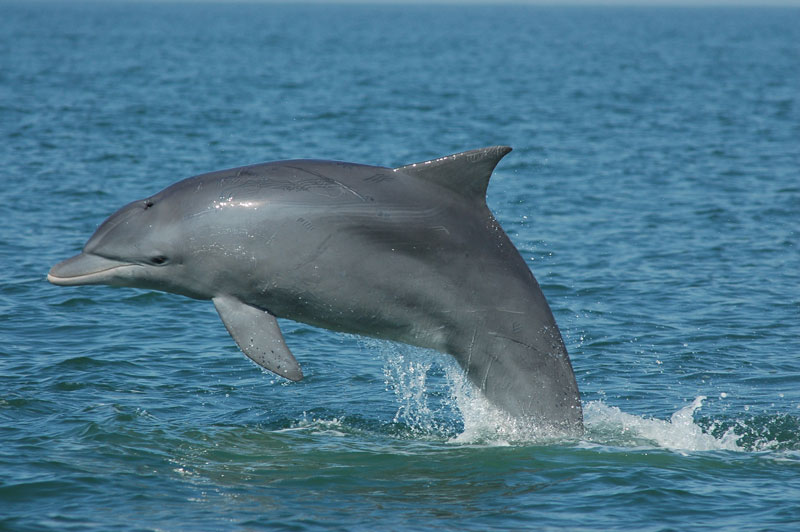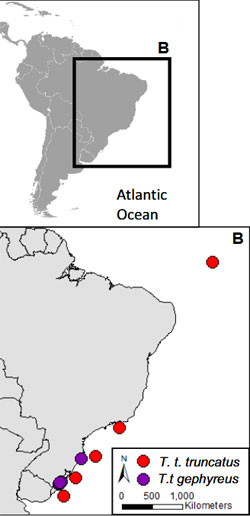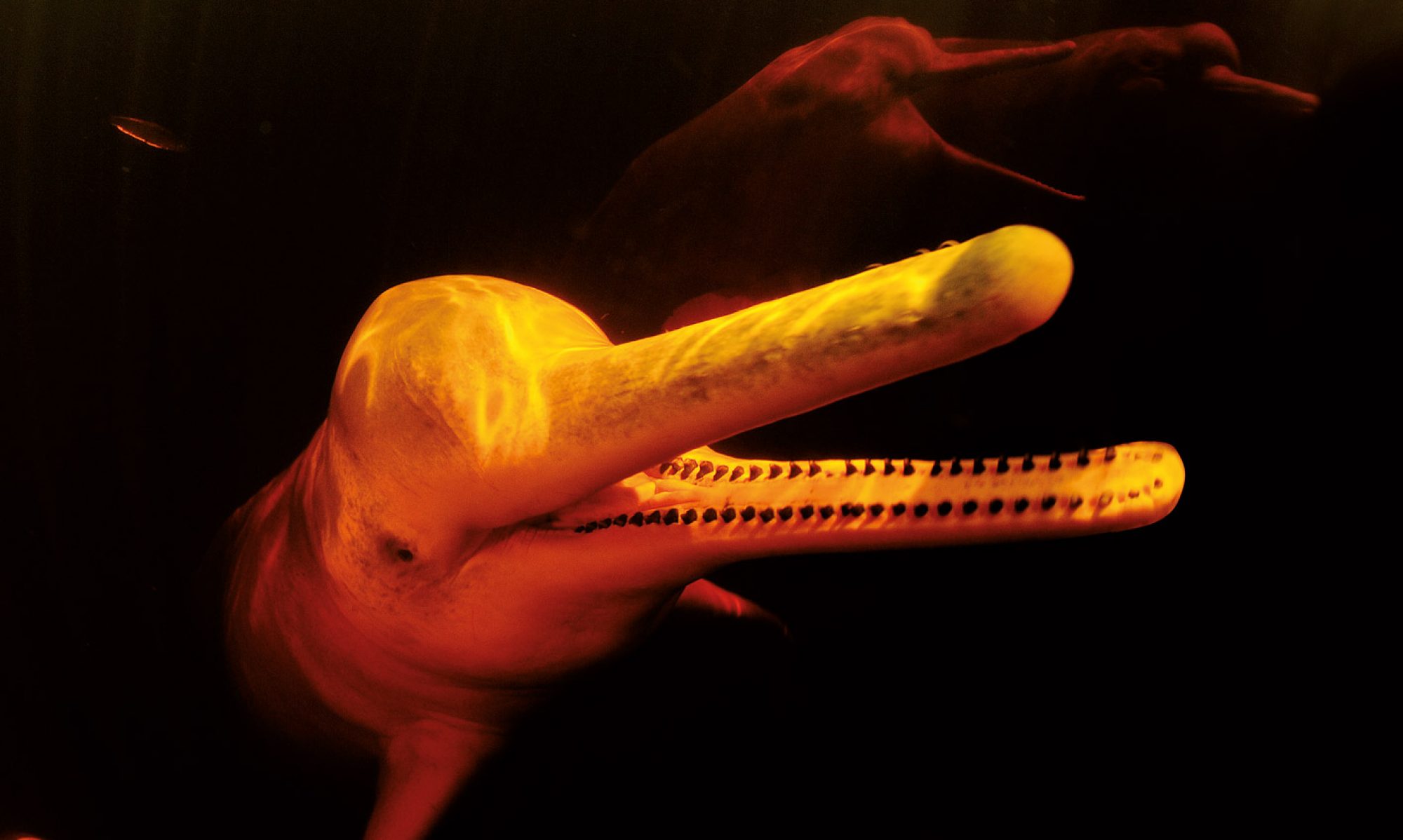
Climatic changes have led to extensive restructuring of the world's oceans. Marine organisms have responded to new conditions with various biological systems, including genomic adaptations. The increasing accessibility of next-generation DNA sequencing methods for studying non-model species has recently made it possible to investigate genomic changes underlying environmental adaptations. This study used double-digested restriction site-associated DNA (ddRAD) sequencing data to investigate the genomic basis of ecotype formation in the currently recognized species and subspecies of bottlenose dolphins (genus Tursiops) in the southern hemisphere.

Genomic divergence at the subspecies level has been confirmed between the coastal bottlenose dolphin (T. truncatus truncatus) and the coastal Lahille dolphin (T. t. gephyreus) in the southwestern Atlantic Ocean (SWAO). Similarly, divergence at the subspecies level is suspected between the coastal (eastern Australia) Indo-Pacific bottlenose dolphin (T. aduncus) and the proposed Burrunan dolphin (T. australis) from southern Australia. Coastal bottlenose dolphins generally had lower genomic diversity than offshore lineages, a pattern that was particularly evident in T. t. gephyreus, which showed exceptionally low diversity. Genomic regions associated with cardiovascular, musculoskeletal, and energy production systems appear to have undergone repeated adaptive evolution in coastal lineages in the southern hemisphere. We hypothesize that comparable selective pressures in the coastal environment have driven similar adaptive responses in each lineage, supporting the parallel evolution of coastal bottlenose dolphins. As climate change alters marine ecosystems worldwide, it is crucial to gain an understanding of the adaptability of local species and populations.
Our study provides insights into important adaptive pathways that may be important for the long-term survival of whales and other organisms in a changing marine environment.
Genomic Divergence and the Evolution of Ecotypes in Bottlenose Dolphins (Genus Tursiops)

